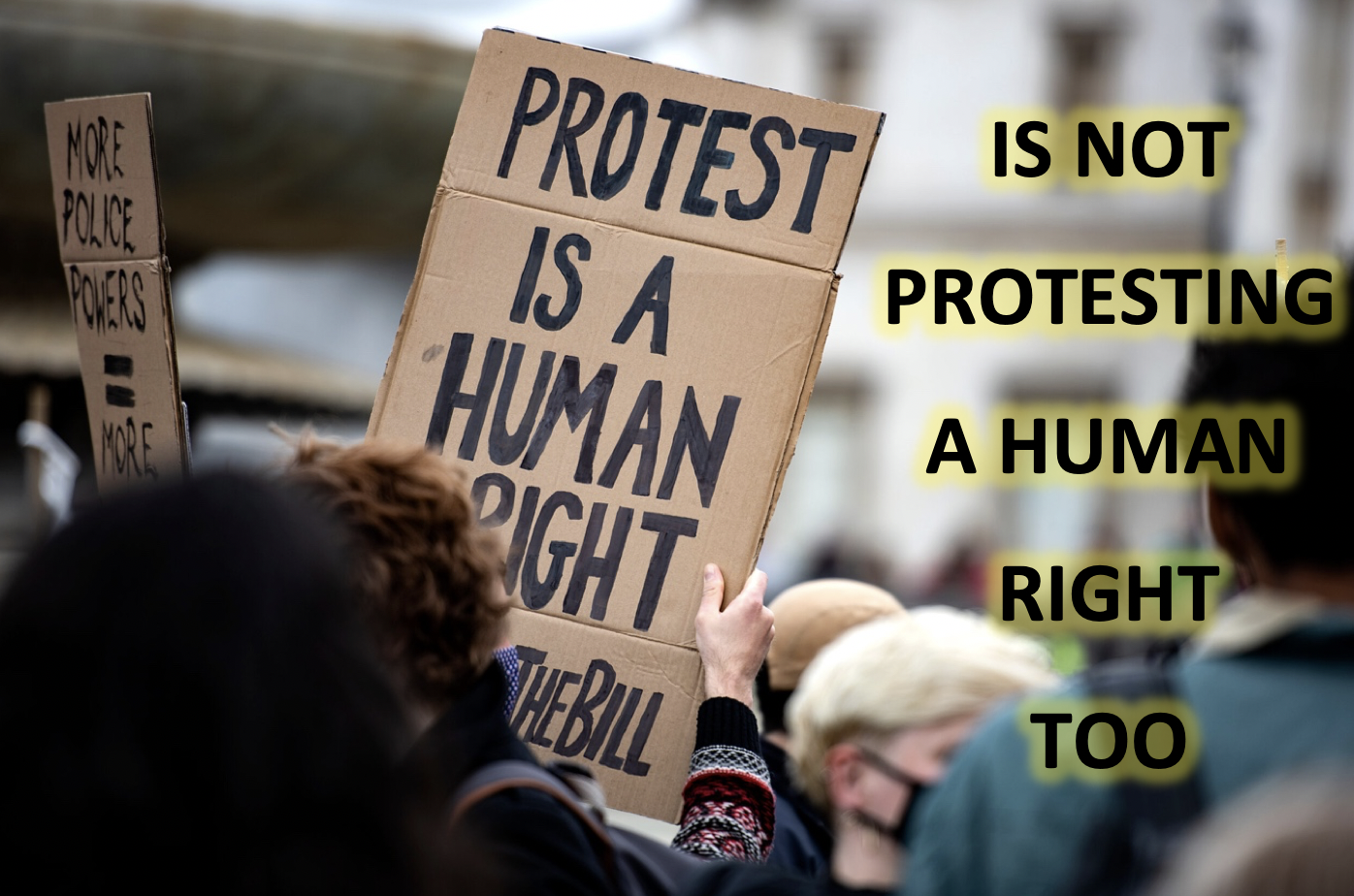GoSL & SL Police – Officially Define a Protestor/Protest & Laws pertaining to all
Posted on June 15th, 2022
Shenali D Waduge

It is legal to protest but there are restrictions. Are protestors aware of the restrictions? If not, the onus is on the Sri Lankan Govt, the Sri Lankan Police to clearly make public what is legal and what is not & it must be communicated by the Govt’s Media division. GoSL must define what is a peaceful protest, who is a peaceful protestor & how does a peaceful protest and peaceful protestor becomes violent & what legal action can be taken against them by the Govt & law enforcements. Legislations or additional legislations must be issued immediately.
Let’s not forget that any protest/demonstration/march is taking place on public space, which means this space is meant not only for the protesting individuals/groups but others as well. Therefore, the law that one’s human rights cannot overstep the human rights of another remains valid & applicable. This is where police are brought in to ensure the protestors do not exceed their rights but also displaying tolerance towards peaceful protestors.
Protest/demonstrate/march in a public space
What laws protect the right to protest in Sri Lanka?
What laws protect the rights of the protestor in Sri Lanka?
When does a peaceful protest become violent?
When does a peaceful protestor become violent?
What is a peaceful protest?
Who is a peaceful protestor?
Are there restrictions to hold a peaceful protest?
Ex: a protest or assembly during a plague that may cause a national public health risk
Govt & Police must outline at which instances even peaceful protests can be restricted & what are the restrictions the govt can impose (ex: limiting the number of protestors/protests to gather – distance to be followed – areas permitted etc)
UK passed additional legislation restricting right to assembly & gave the UK police powers to break groups, fine or even arrest who committed offence.
What constitutes a violent protest?
What constitutes a violent protestor?
What is the law applicable if protests/protestors become violent and inflicts damage to people or property (public or private)
As protestors occupy public space there has to be a statute of limitation to their protests – protestors cannot occupy public places indefinitely. This essentially constitutes trespassing & illegal occupation.
Limitations to protests must be outlined in legislation.
What is the ‘restraint’ that law enforcement must abide during a peaceful protest?
What actions can the law enforcements take when peaceful protests become violent?
These must be clearly defined and publicly made aware of.
In what ways can protestors protest – the mediums they can use, the slogans they can use etc must include what constitutes freedom of expression. This is a very sensitive area but a legal explanation with deterrents & actions that can be taken in violating freedom of expression must be provided.
Clear definitions must be made.
It must be added that anyone who is a public figure and as such enjoying tax payers money have to accept peaceful protests against them.
What are the actions that can be legally taken against those that commit public disorder, serious damage to property & life of the community or even intimidation of people.
GoSL must have these clearly outlined in an existing Act amended or a new Public Order Act giving limitations, restrictions, duration and even amount of people allowed to participate by defining the protests/demonstrations and marches.
The police have to not only protect protestors but uphold the peace of non-protestors as well. Therefore, protestors may demand their rights but they cannot ignore that the rights of non-protestors are equally to be upheld and protected.
It is very important that the definitions are clearly legislated and communicated and not only the people but the police are also well aware of the powers they yield and the restrictions with which they too much function.
Categorize Protests
Any protest must take place with permission – written permission must be granted only after it meets the conditions that have been defined.
(written request – requirement for advance notice – date/time – contact details of those in charge) with the approval – a list of dos and donts must be given to the organizers so they are aware of the limitations to their protests and the consequences if they violate.
This has to be conveyed to the police who are aware of the category of protest under which permission has been given and the restrictions with which the protest is bound by. This makes it easy for the police to know what are acceptable and not-acceptable and what actions the police can and cannot take.
Punitive actions
If protests & protestors violate the conditions with which they have been allowed to protest, there has to be appropriate actions against them legislatively made clear. We cannot have a situation where lawyers run to courts to provide free legal advice and clap at protestors who have caused harm or damage to public property.
A first time offence and repetitive offences must carry double fines or community service given current economic situation..
With a powerful Public Order Act in place, with clear definitions for rights and restrictions, punitive actions etc – people not only will have a right to protest, non-protestors will not be inconvenienced while public spaces will not be occupied indefinitely.
It is because protestors and police do not know their rights, do not know what defines a protest and what are the limitations & restrictions applicable to all, unnecessary strife and animosities arise.
Therefore, the Govt without wasting time on bringing constitutional amendments must take up topics that are timely and that has led to a lot of misunderstandings, misrepresenations and misfortunes and bring legislation or amend existing legislation & communicate to the general public, the law enforcements & the legal fraternity who appear to be more confused than everyone else.
Shenali D Waduge